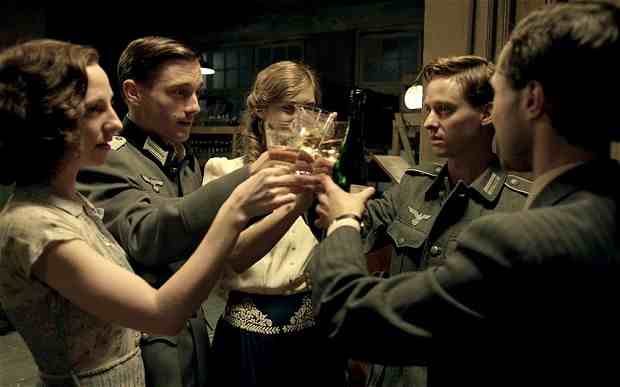
Our Mothers, Our Fathers: ZDF
Our Fathers, Our Mothers (Unsere Mutter, Unsere Vater) which was co-produced by German public station ZDF, was watched by over 7 million viewers in Germany and the rights have since been sold to dozens of countries across the globe.
The series follows the fate of five German friends, between 1941 and 1946, and it was screened by Polish public broadcaster TVP in 2013.
At one point in the drama, Polish partisans belonging to chief underground formation the Home Army stop a German train, but when they discover that the passengers are Jews being transported to a concentration camp, they decide not to free the inmates.
Likewise, the Jewish character Viktor is thrown out of a Home Army unit that he joins when his comrades-in-arms discover his background.
Polish critics pointed out that Poland was the one country in occupied Europe that had an official branch of the resistance devoted to saving Jews.
“This film is a breeding ground for perpetuating hurtful and unfair stereotypes,” commented historian Professor Tomasz Szarota.
Letters of protest were sent by several Polish ambassadors, while a veteran of the Home Army filed a court case against the producers of the drama.
Following the outcry, producer Nico Hoffman commented that “it was a mistake not to consult with Polish historians.”
Prejudice in the Home Army
The late Polish-Jewish resistance fighter Marek Edelman noted that the Home Army, which operated under the auspices of the Polish government-in-exile in London, was not free from anti-semitism. Edelman explained that for this reason, he fought with the left-wing People's Army (Armia Ludowa), during the 1944 Warsaw Rising against the Germans.
However, the Polish government-in-exile backed the Council to Aid Jews (Zegota), and some Jews, such as Stanislaw Aronson, did fight within the ranks of the Home Army.
The Golden Camera awards have been organised by television magazine Horzu since 1965. (nh)
Source: IAR